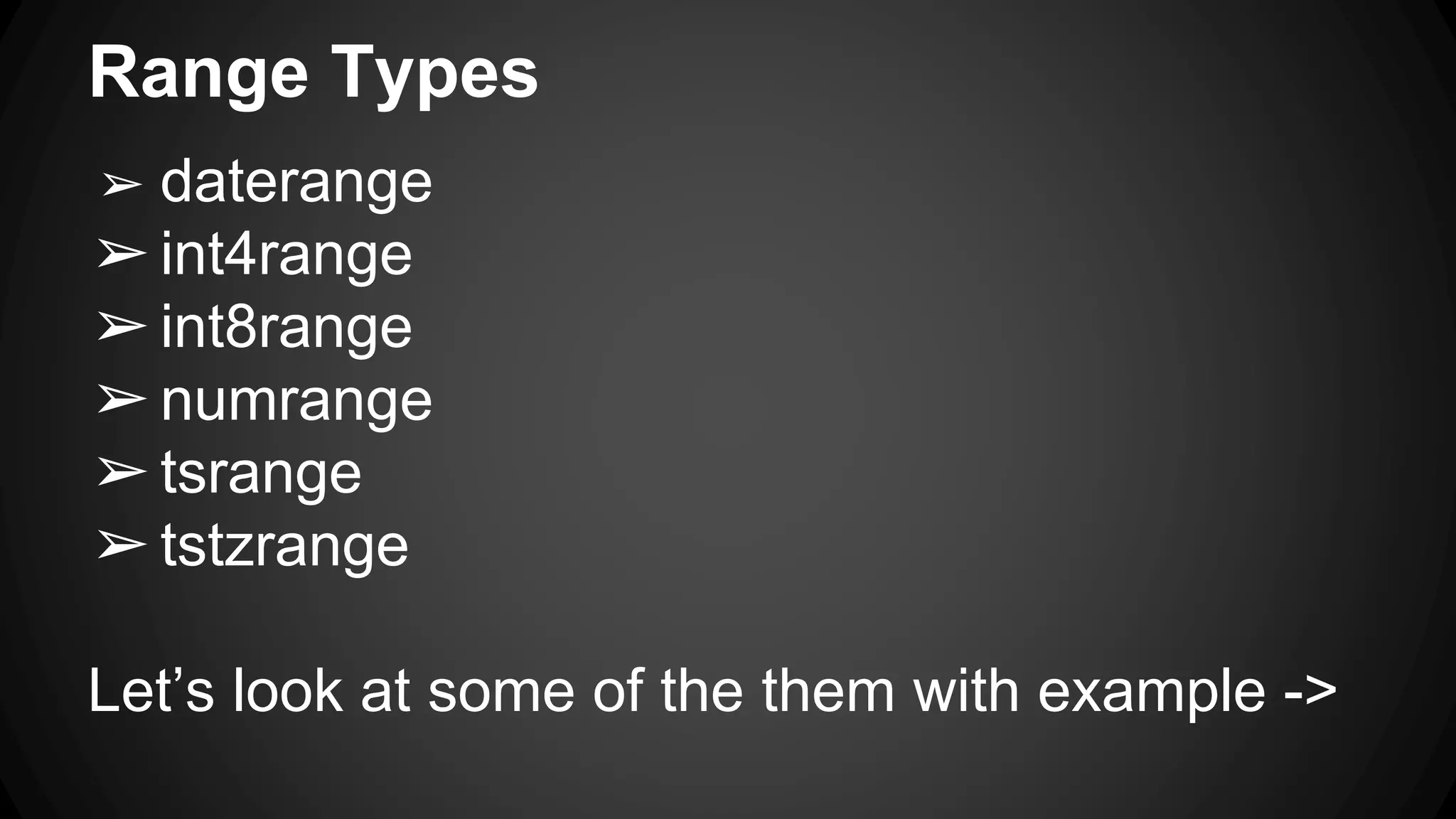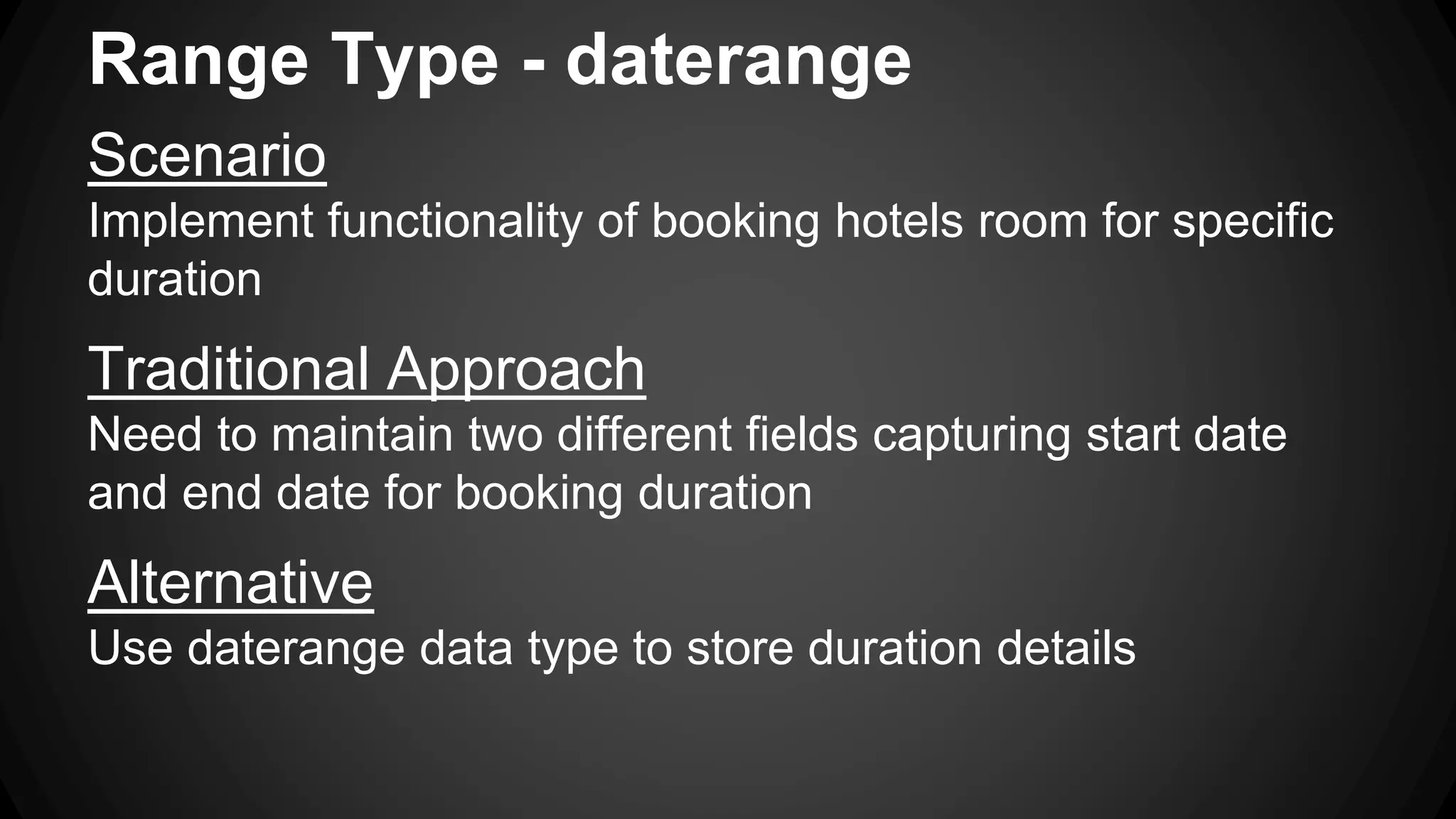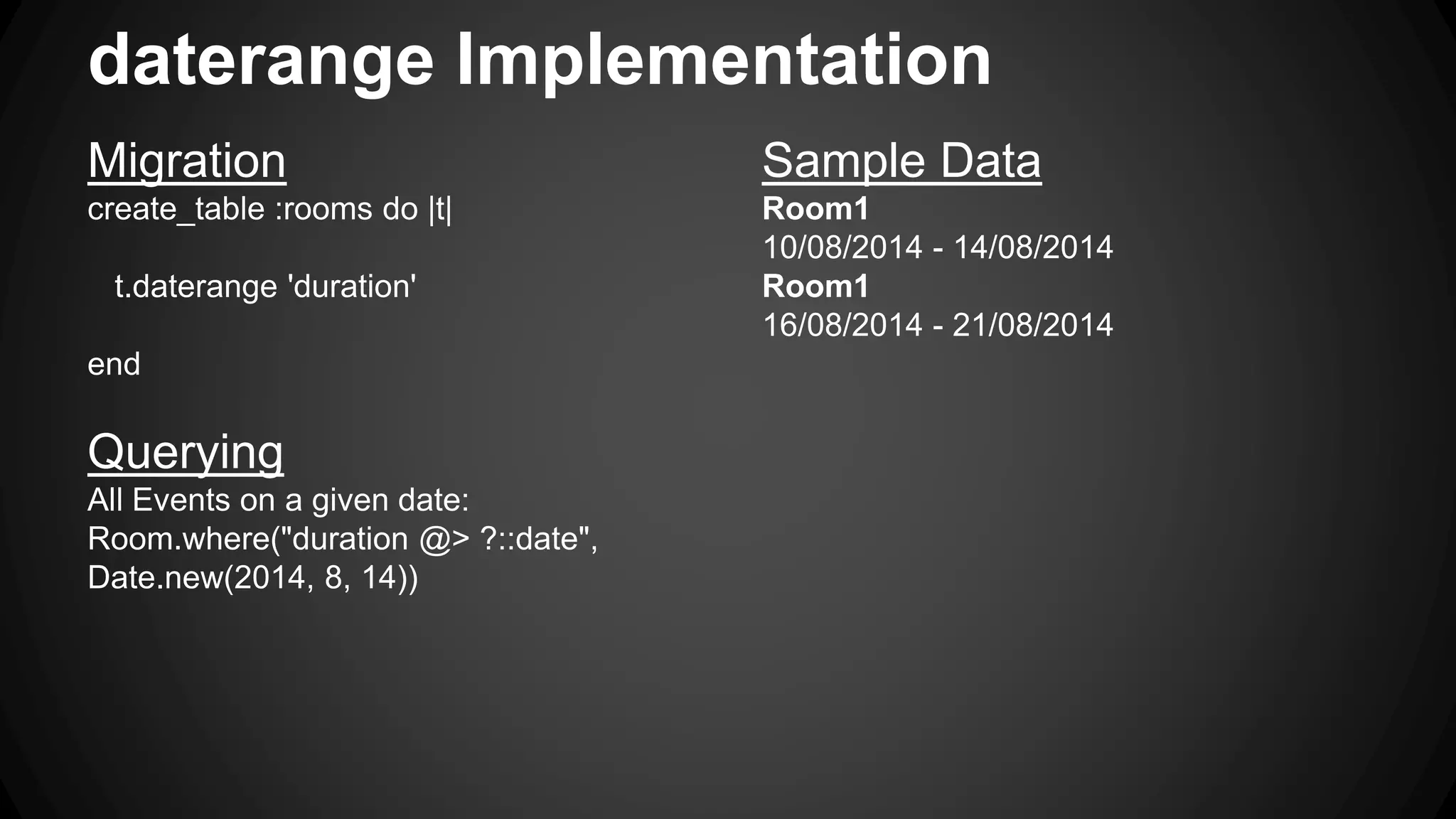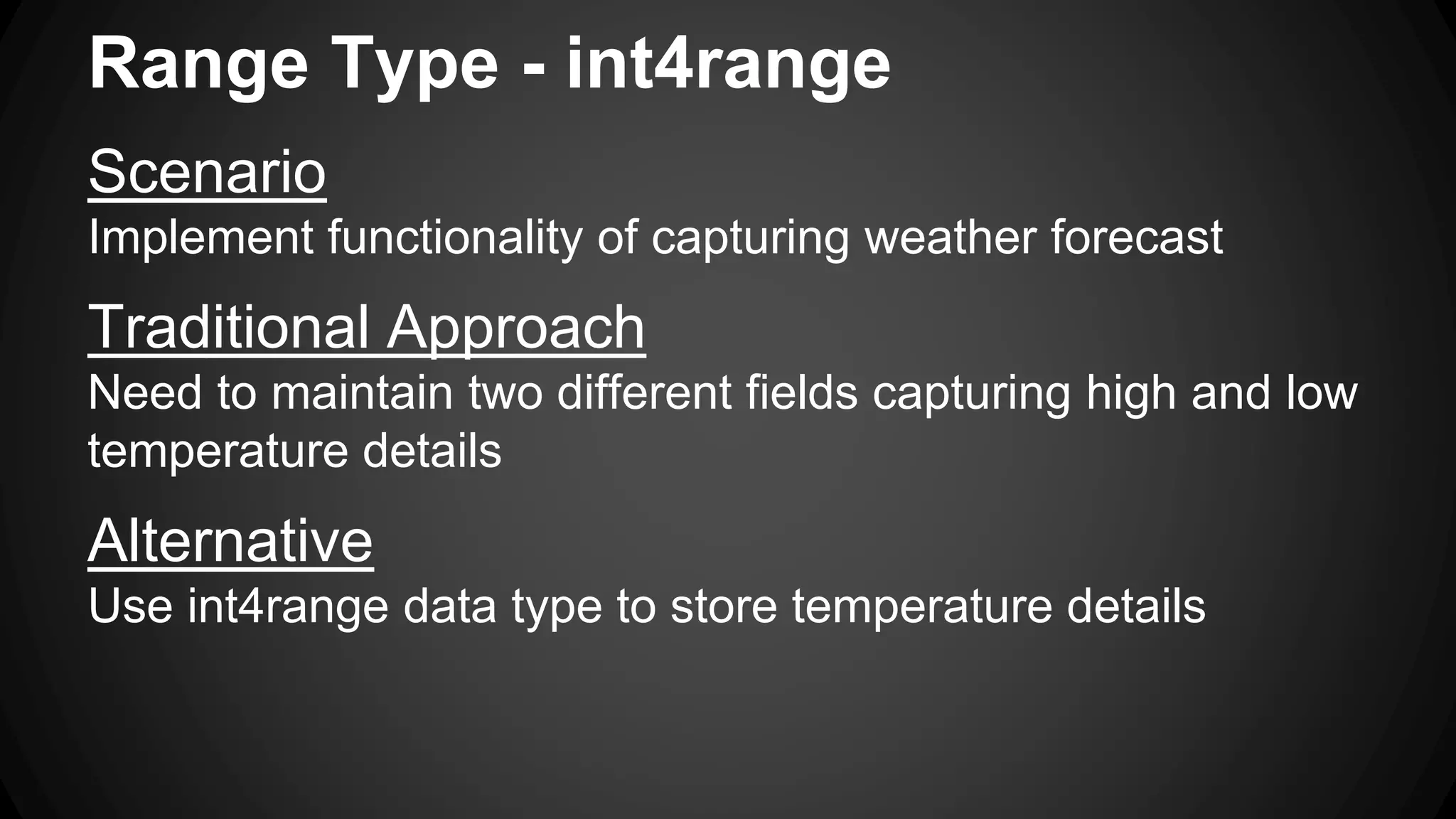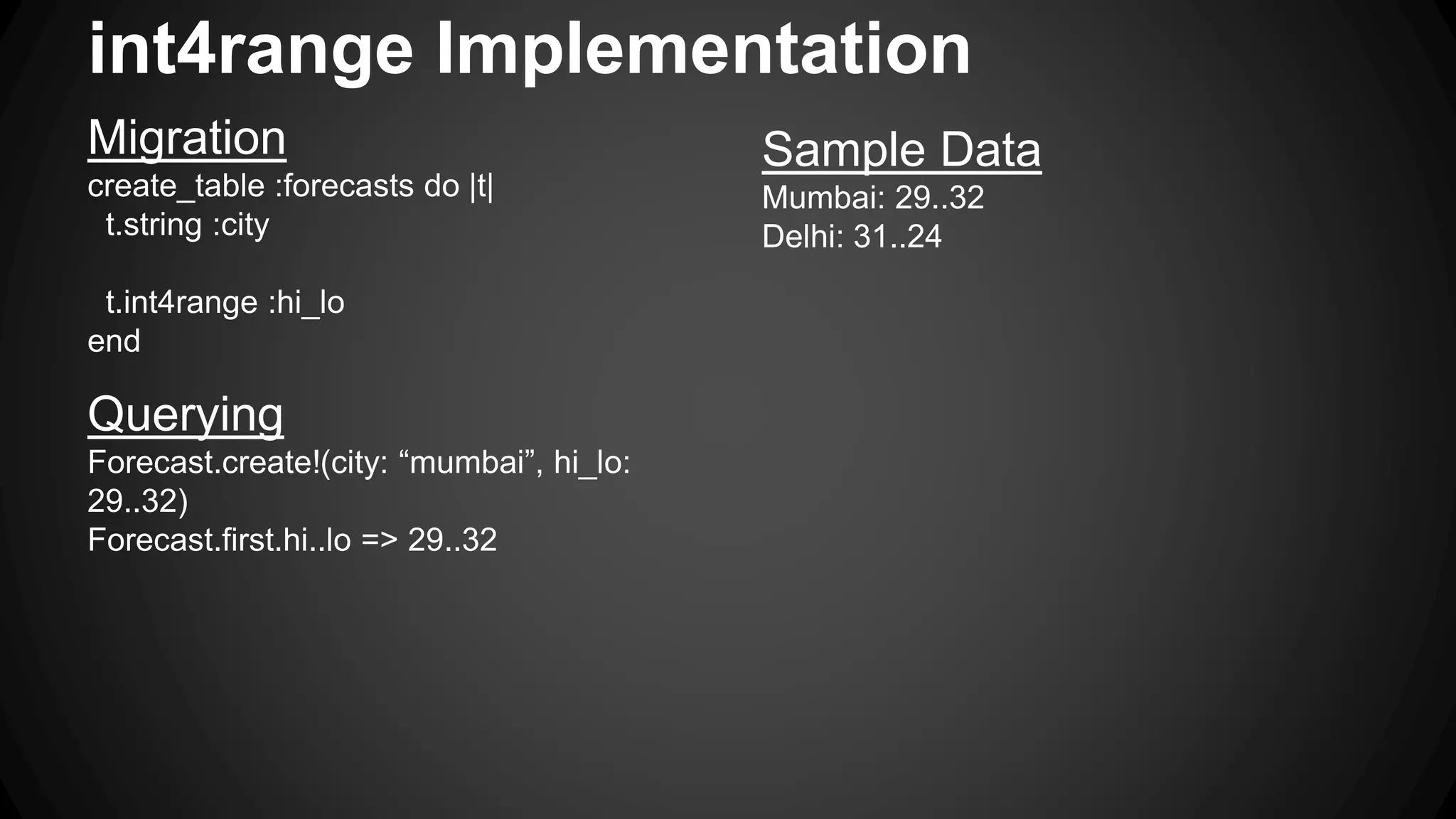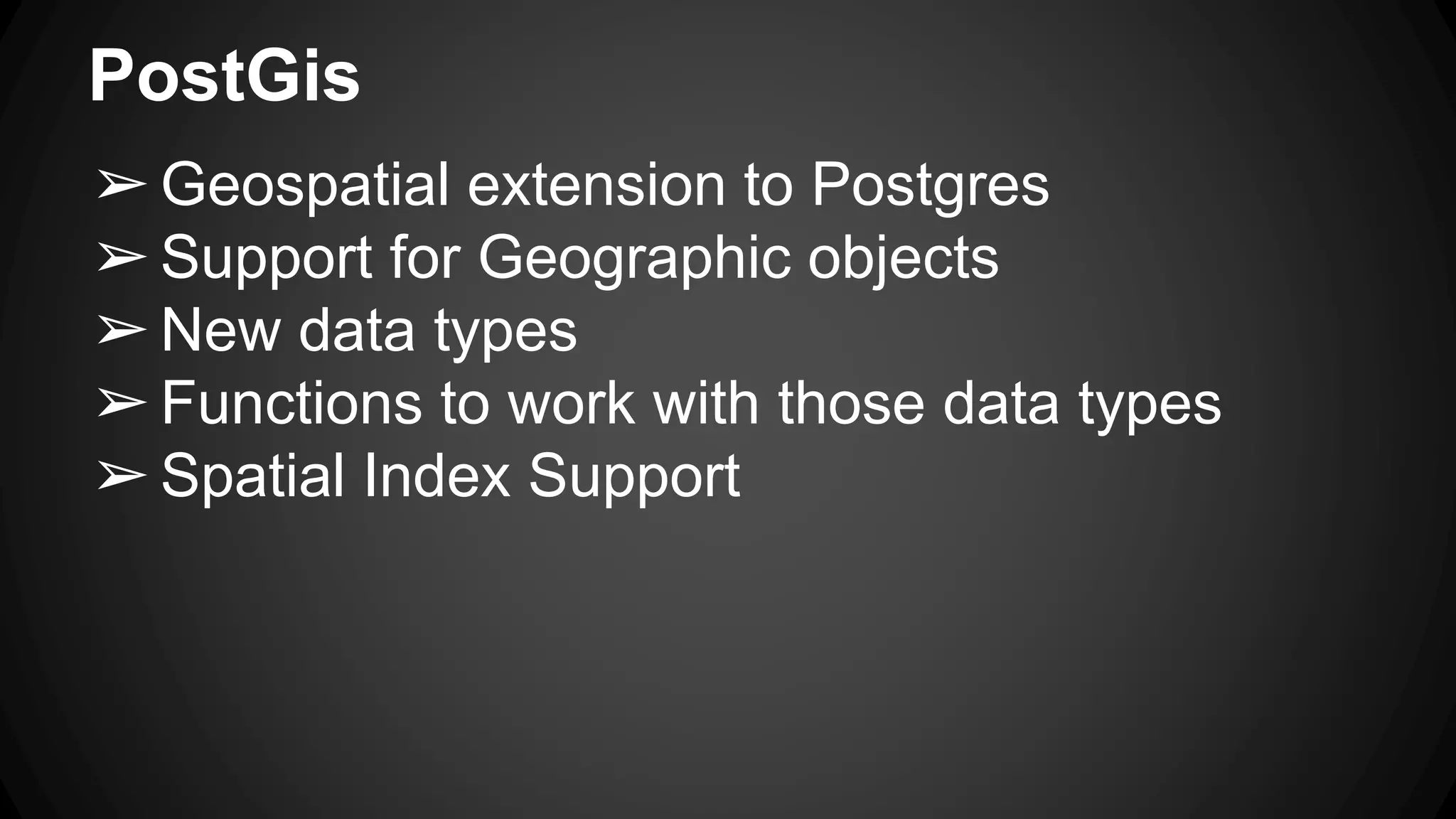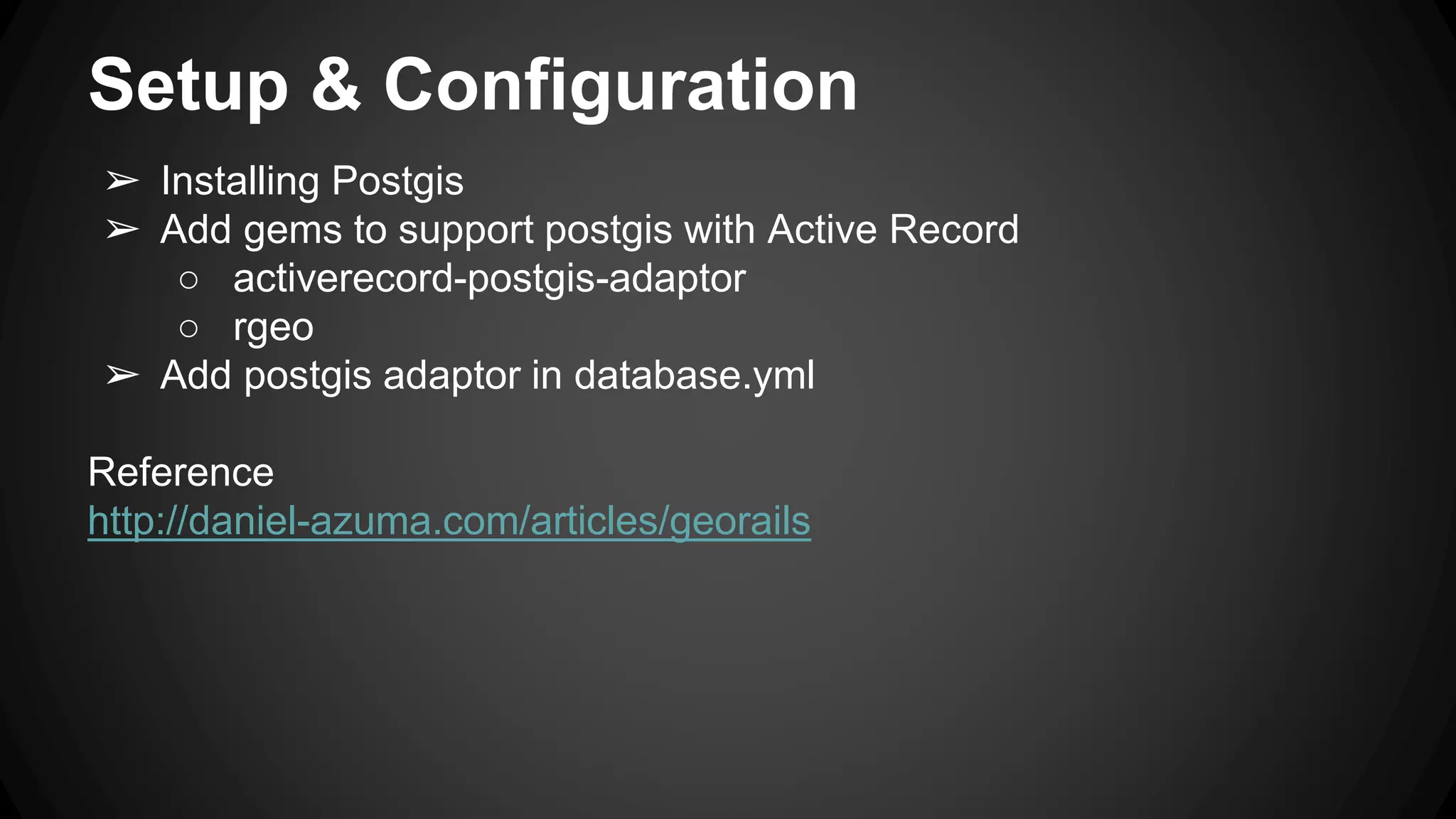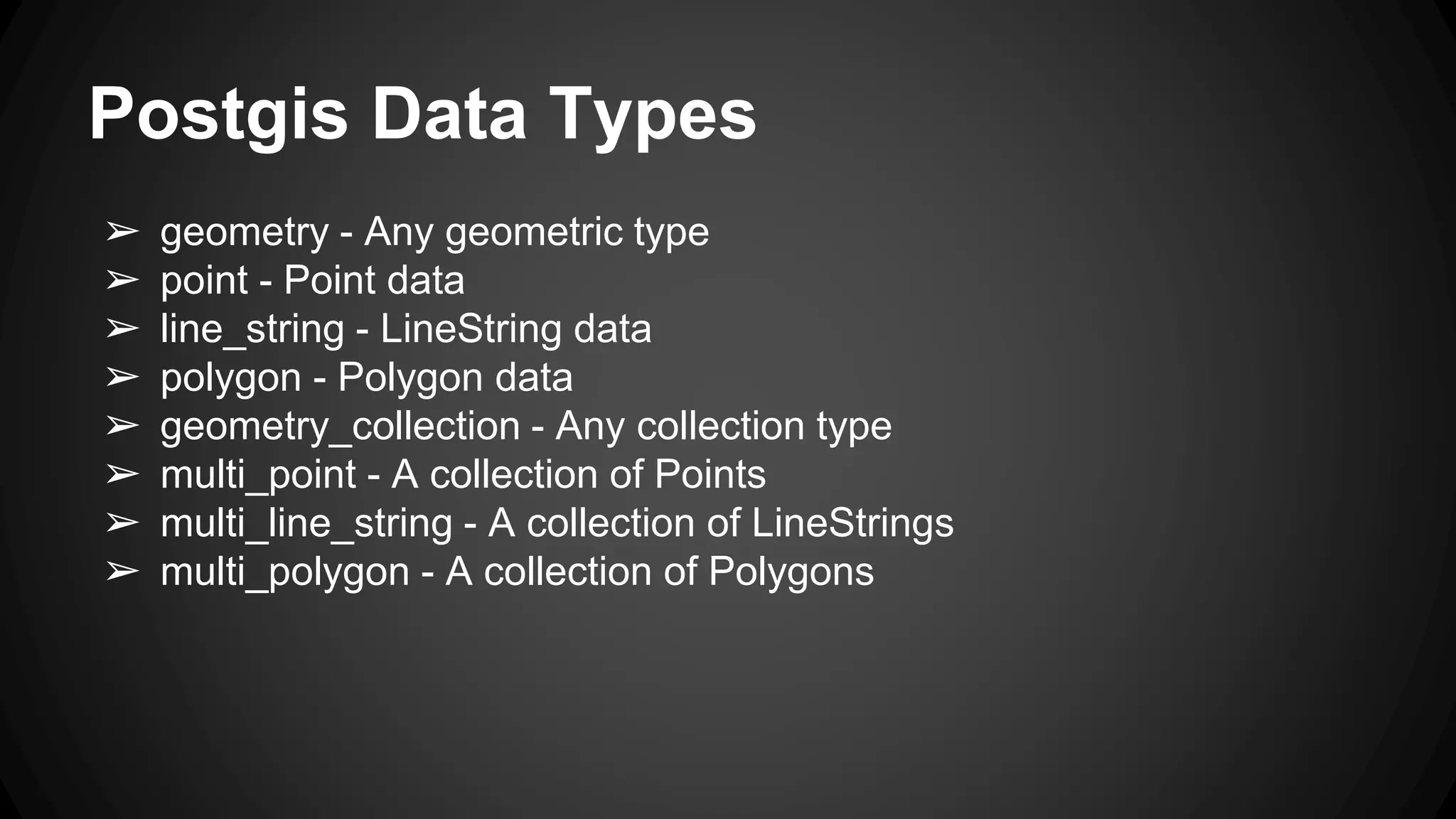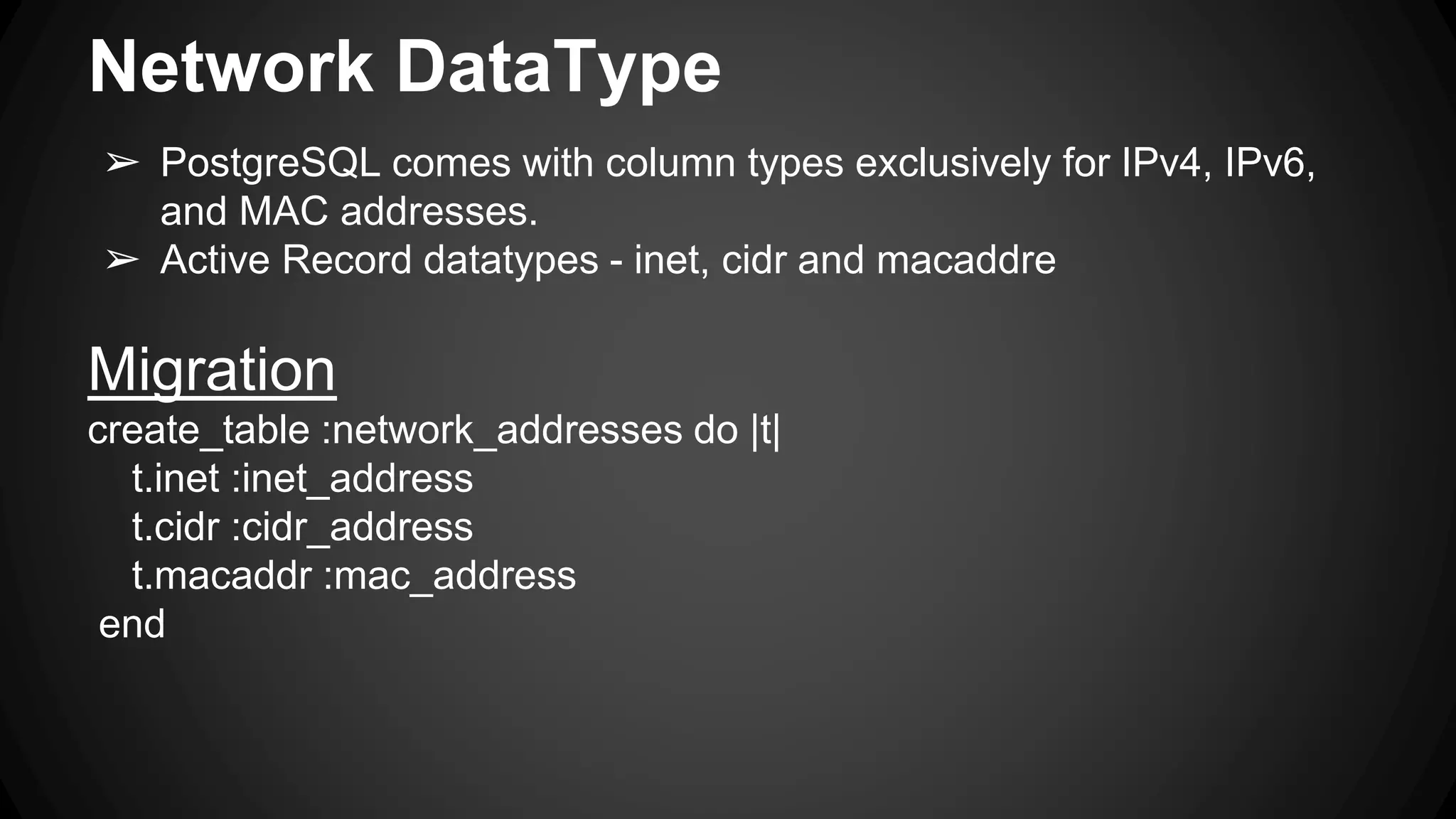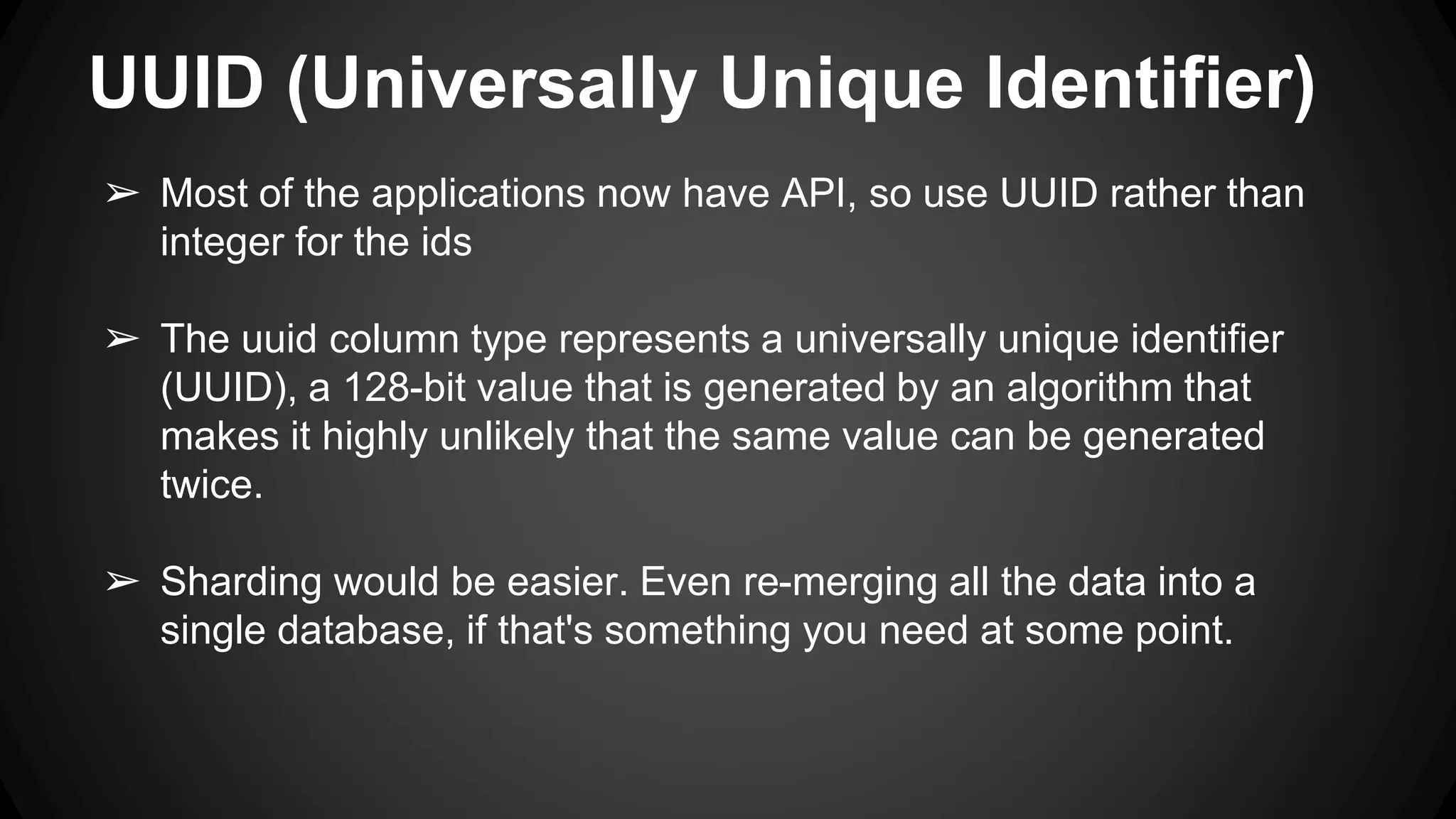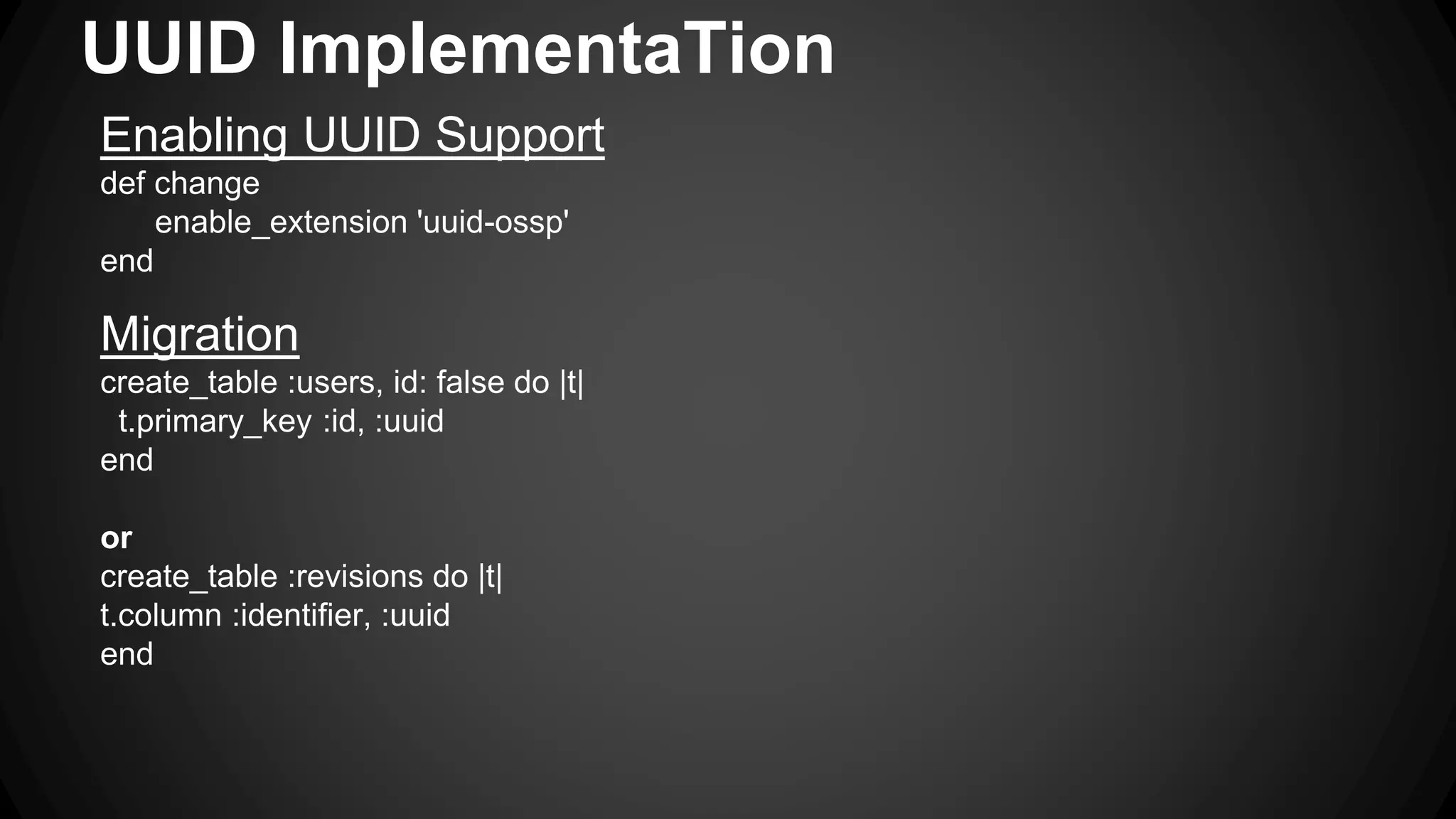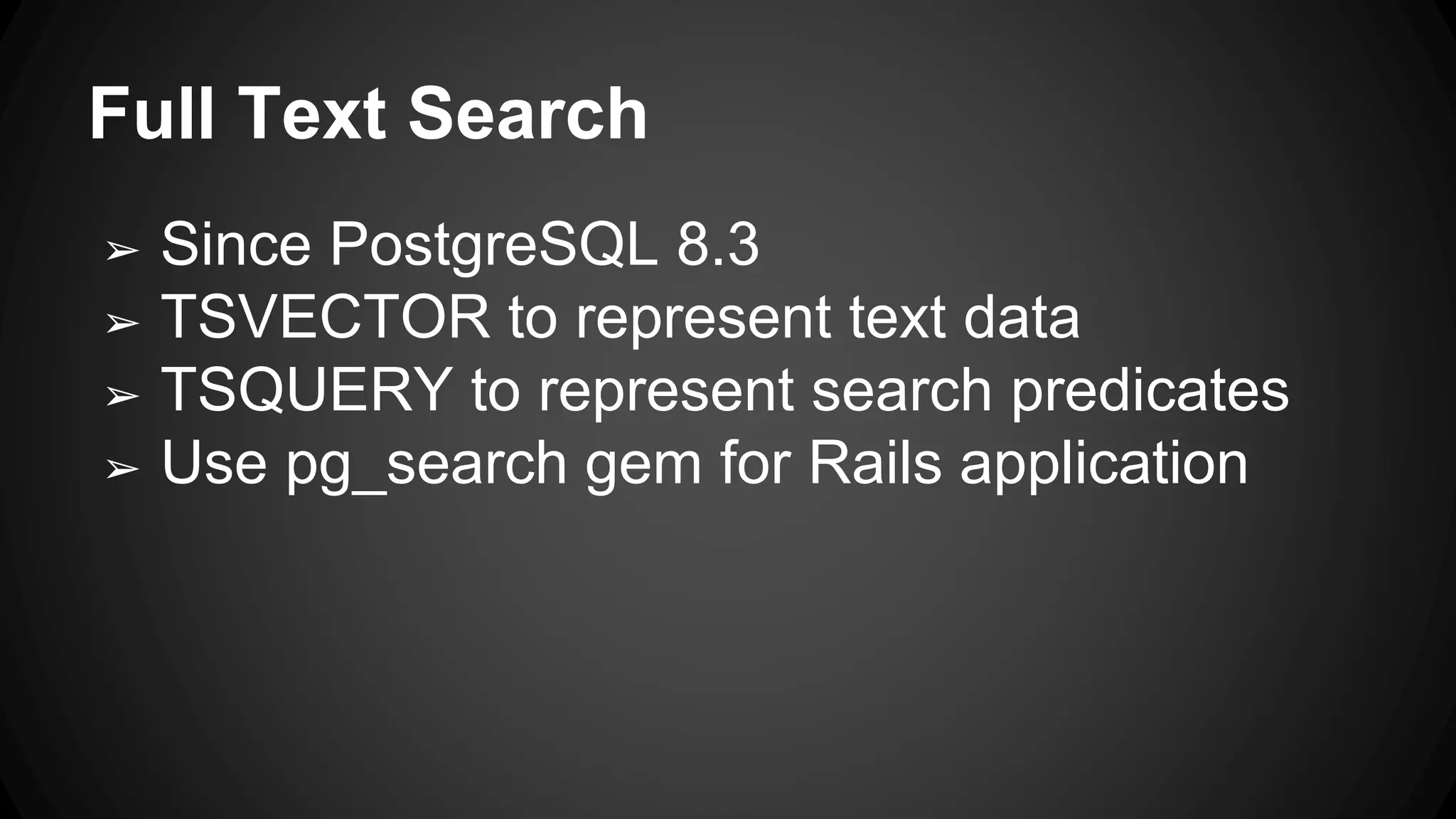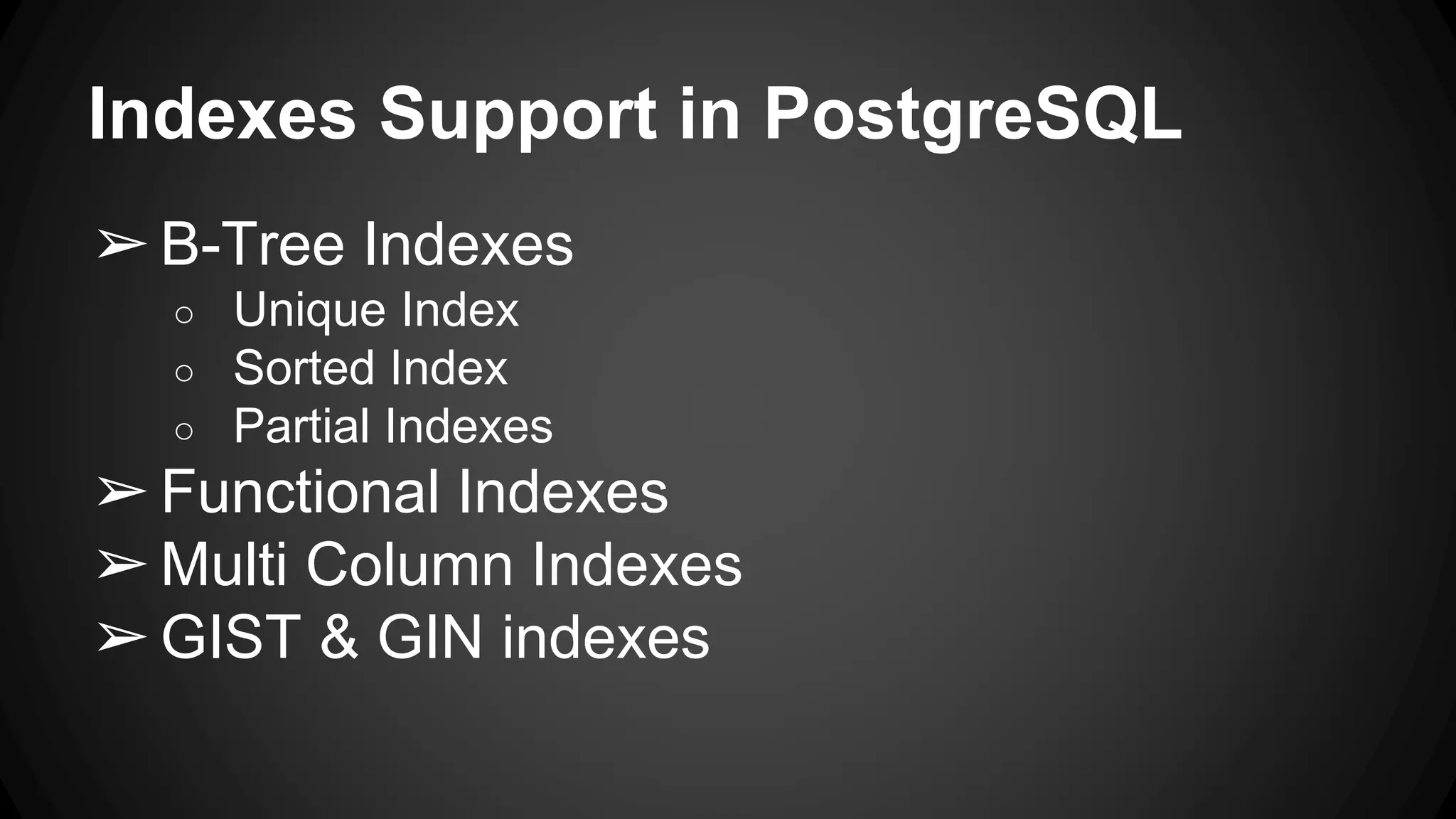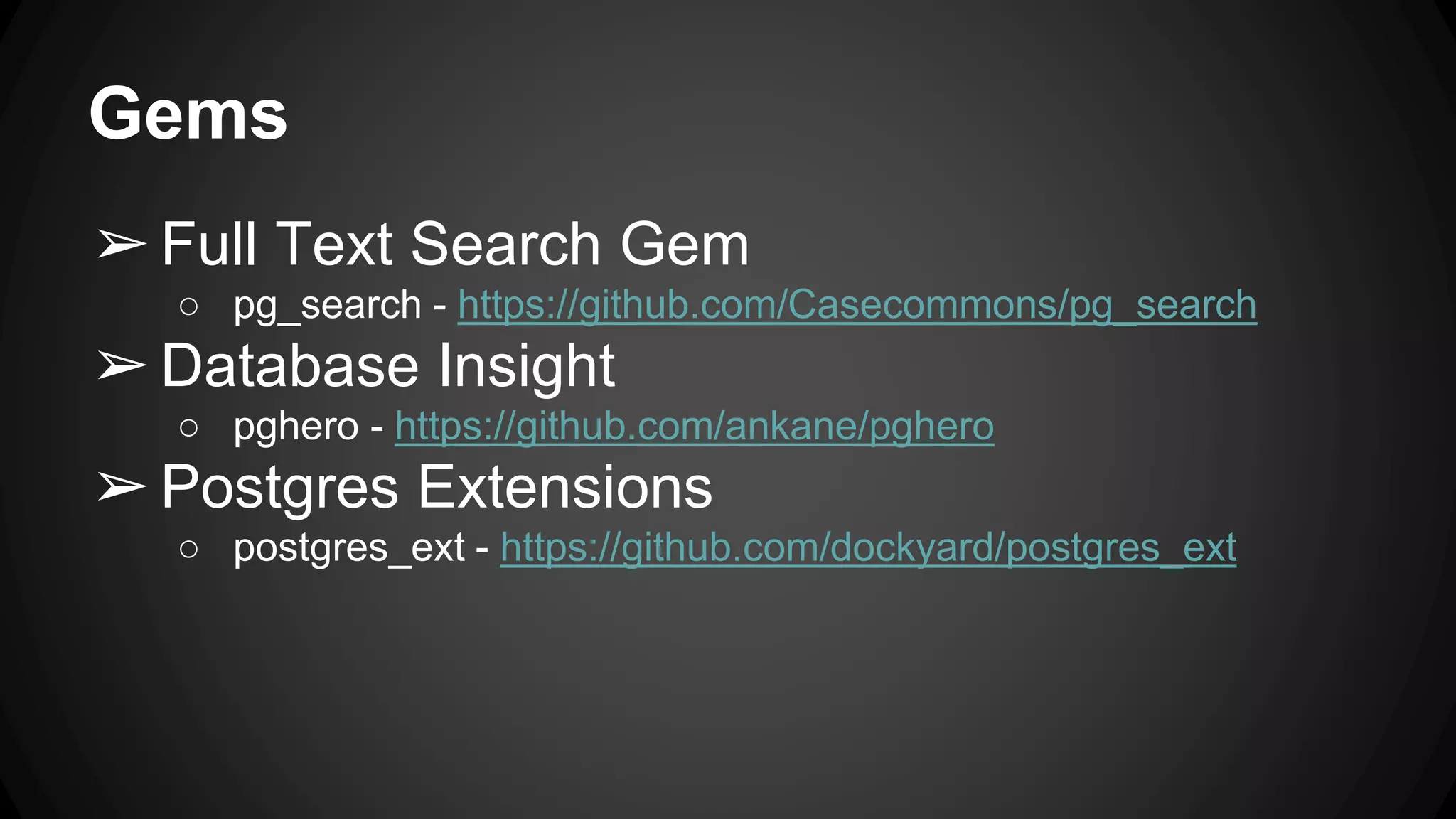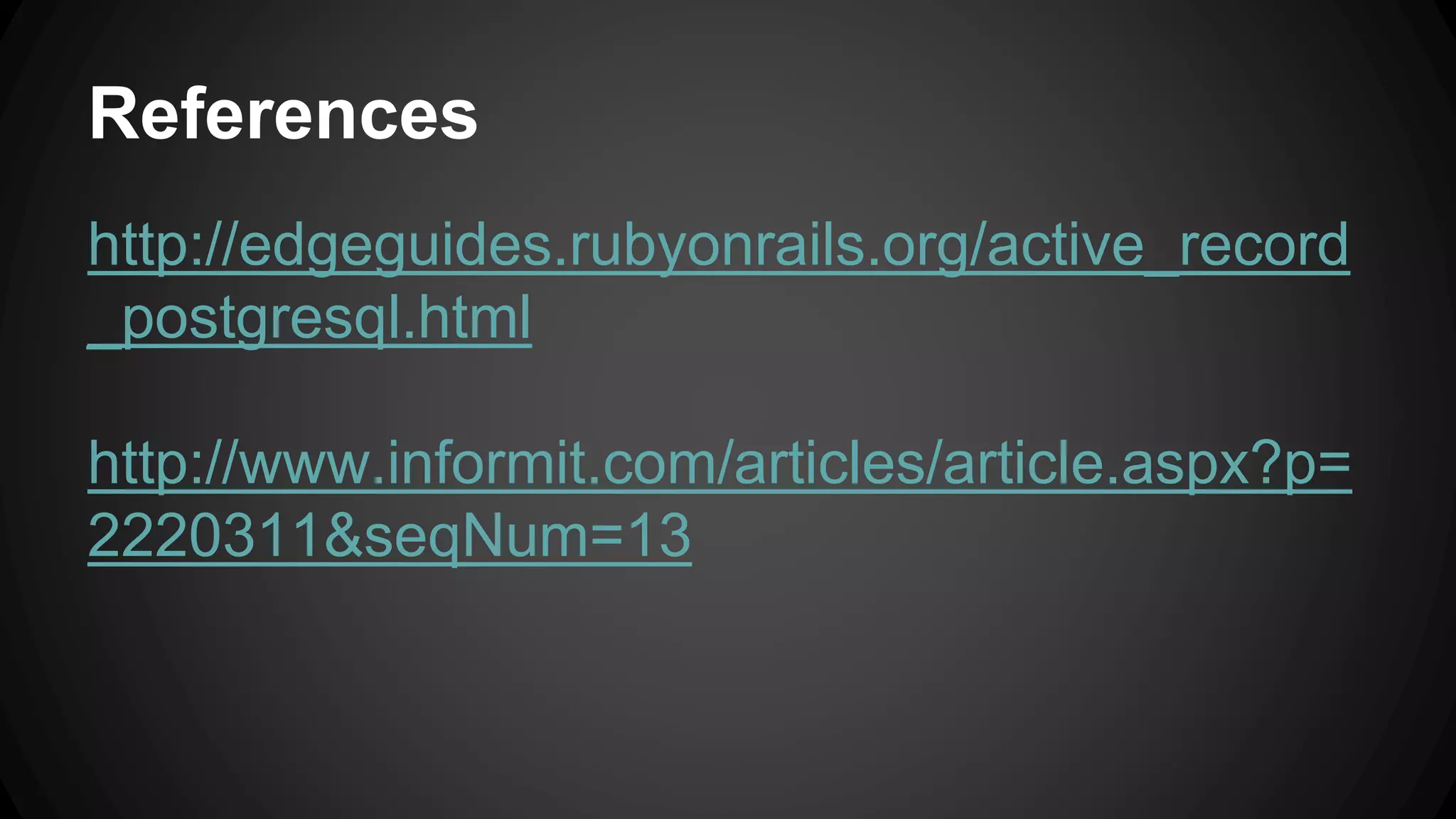This document discusses using PostgreSQL as the database for Rails applications. It covers several PostgreSQL features like advanced data types (JSON, arrays, hstore), UUIDs, full text search, indexes, and PostGIS for geospatial data. Examples are provided for implementing JSON, arrays, hstore, range types like daterange and int4range, and network data types in a Rails application using PostgreSQL. Gems for full text search and database insights are also mentioned.
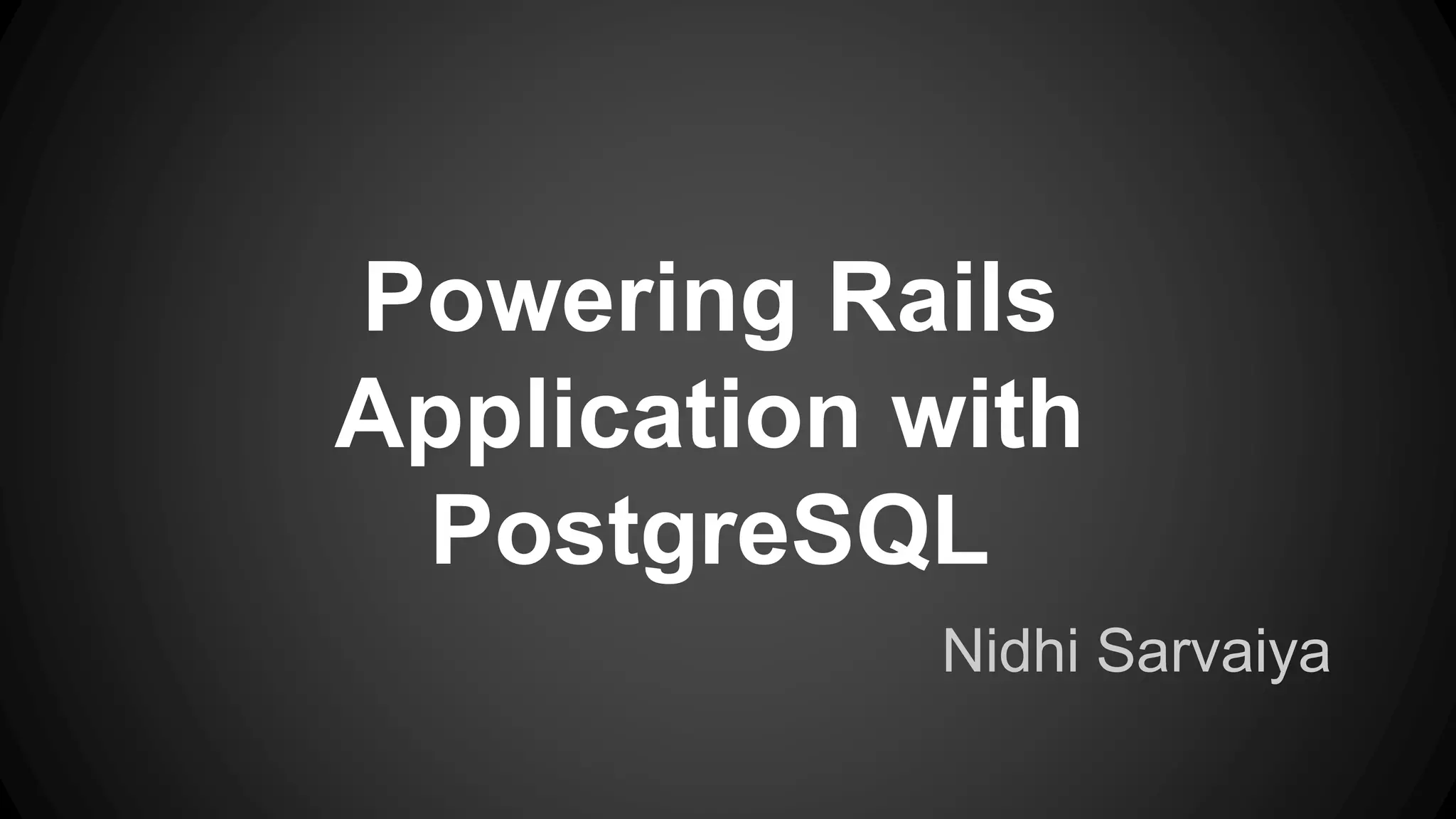

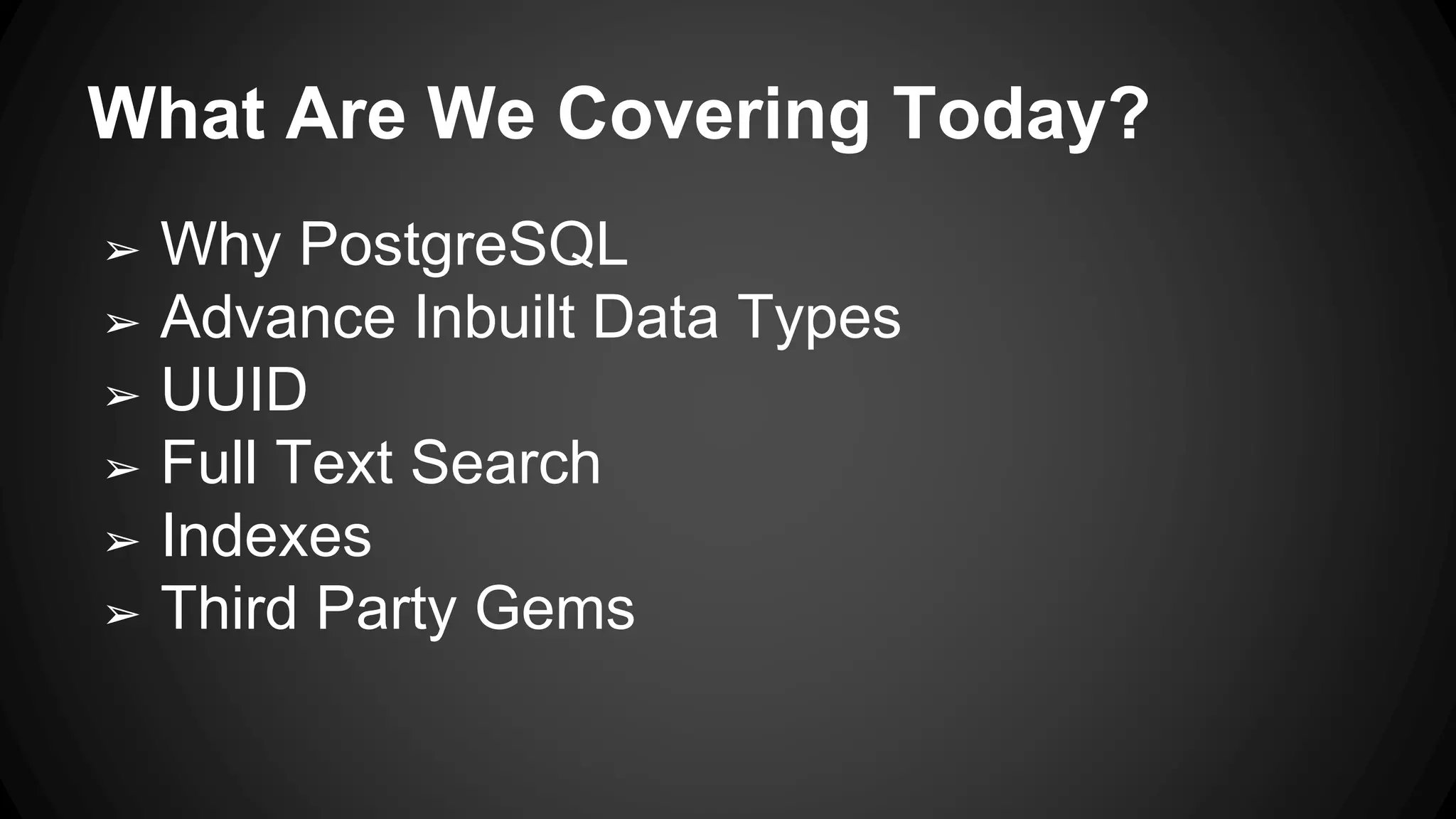
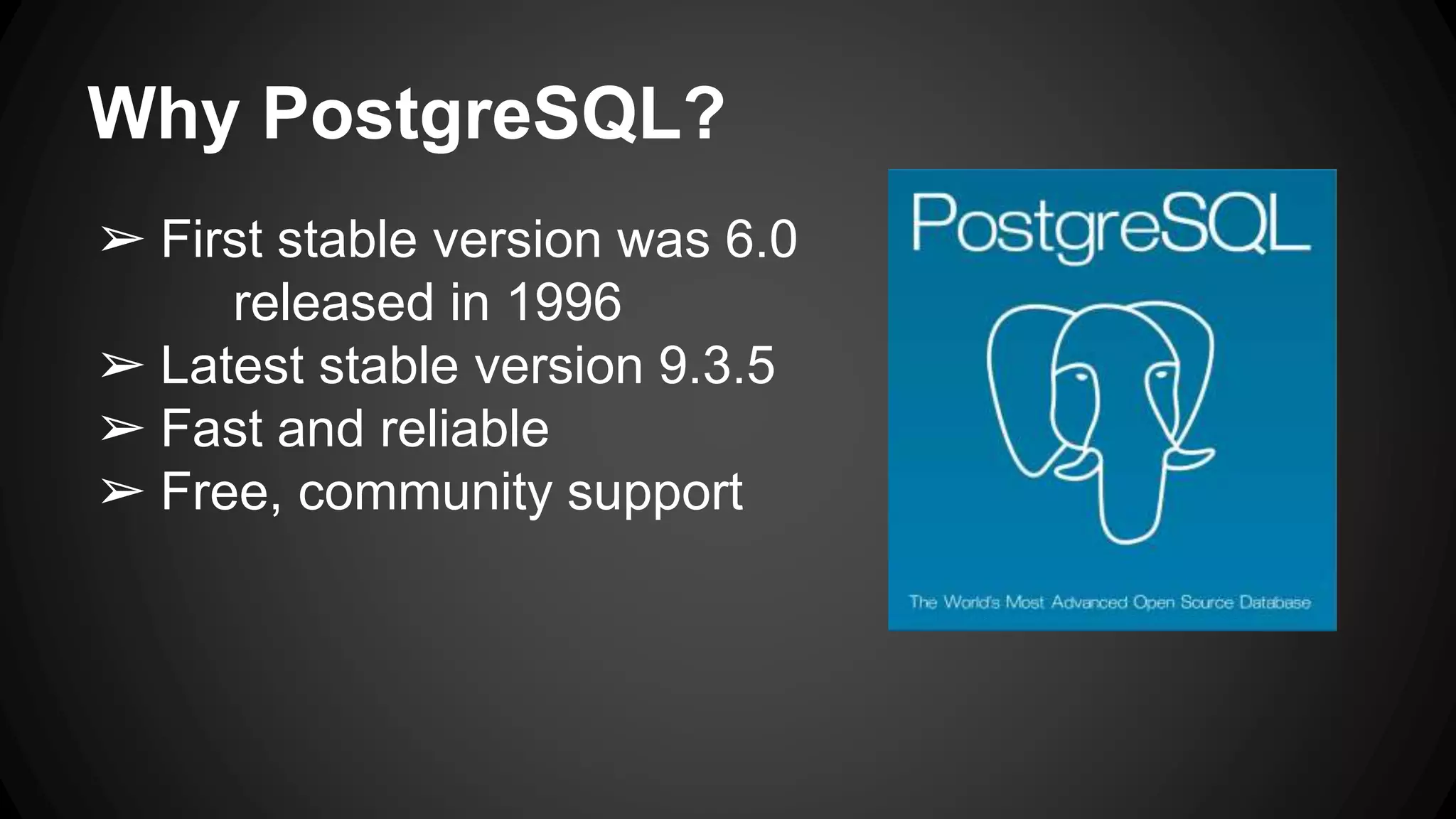
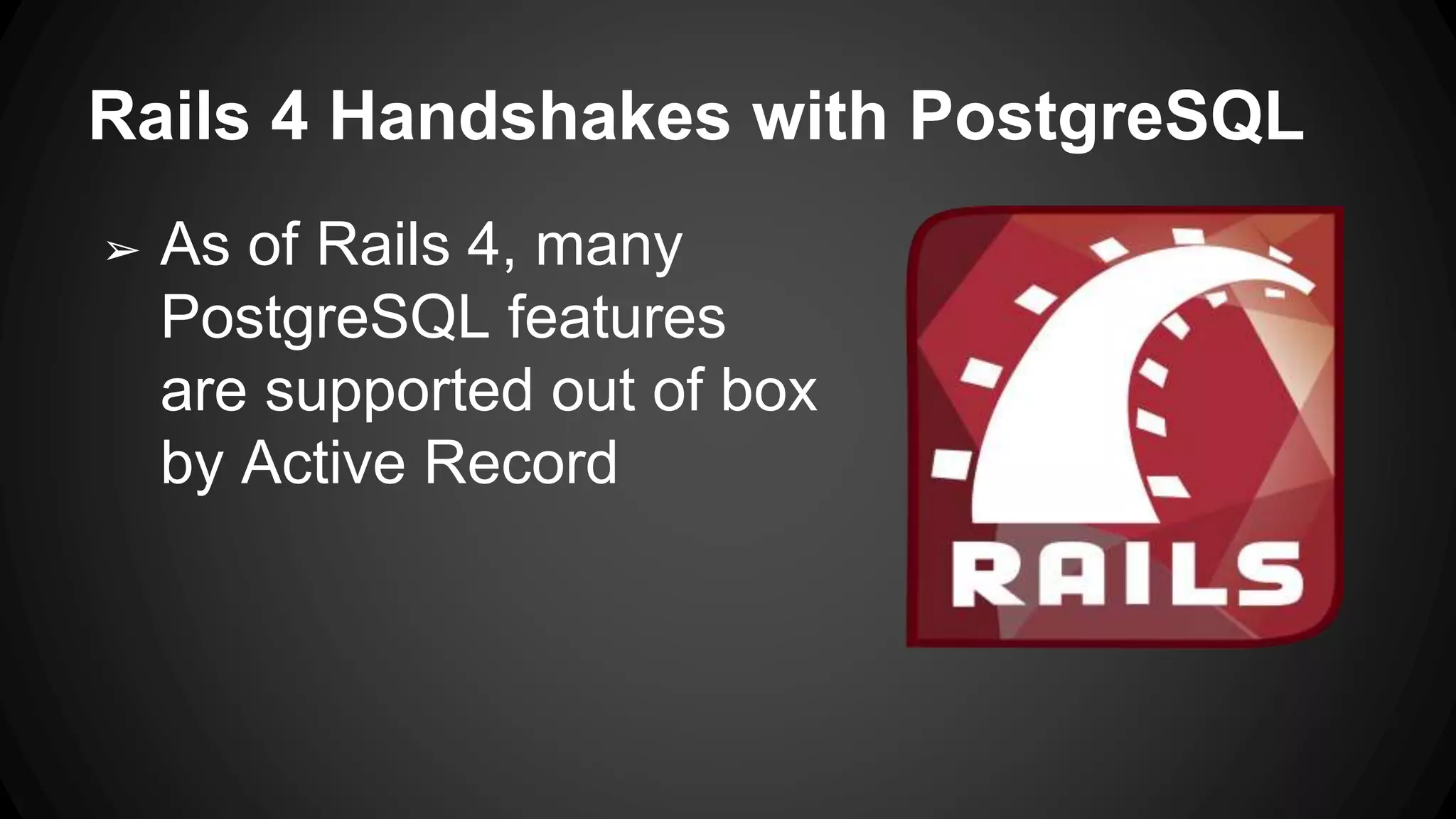
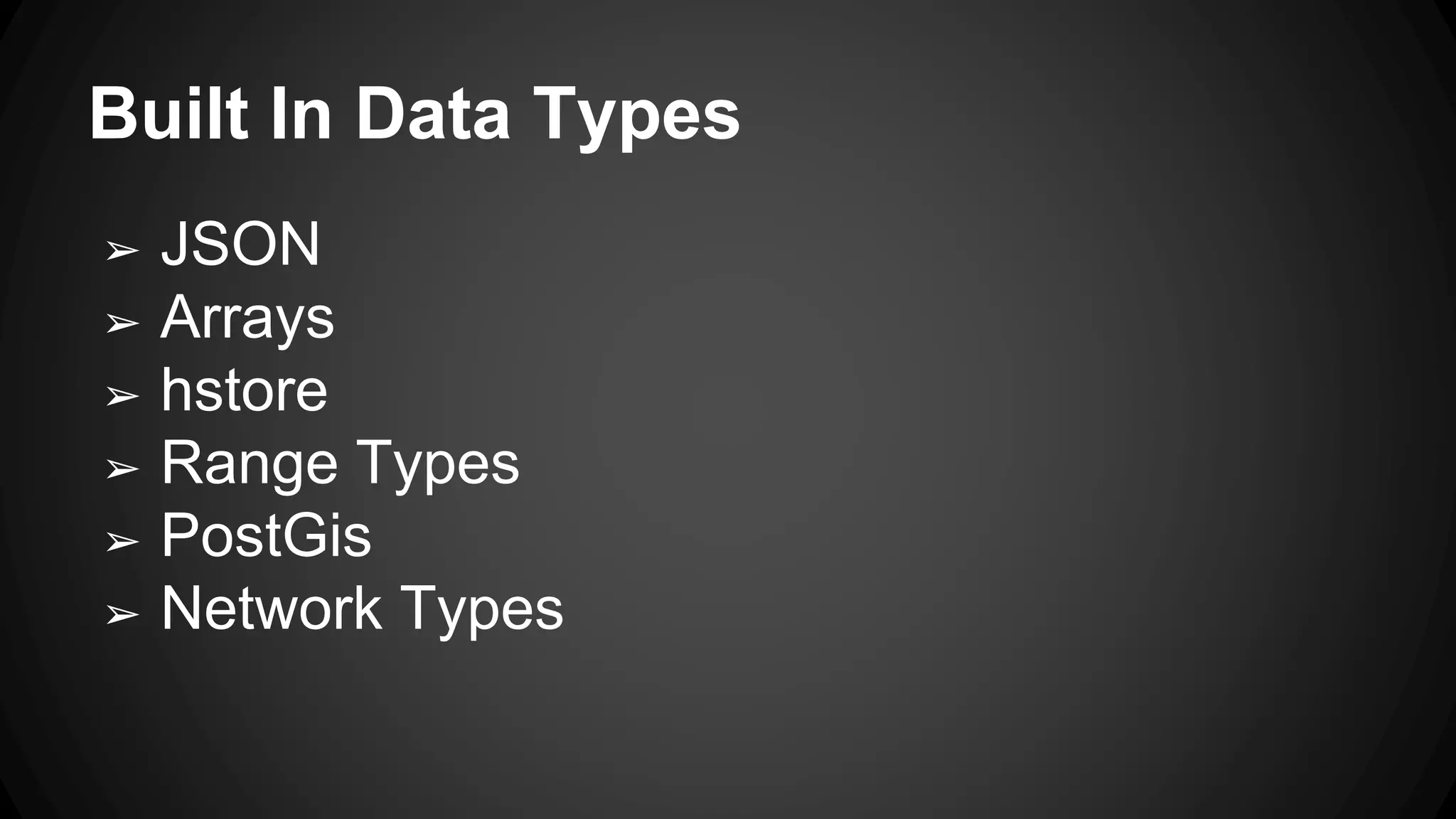
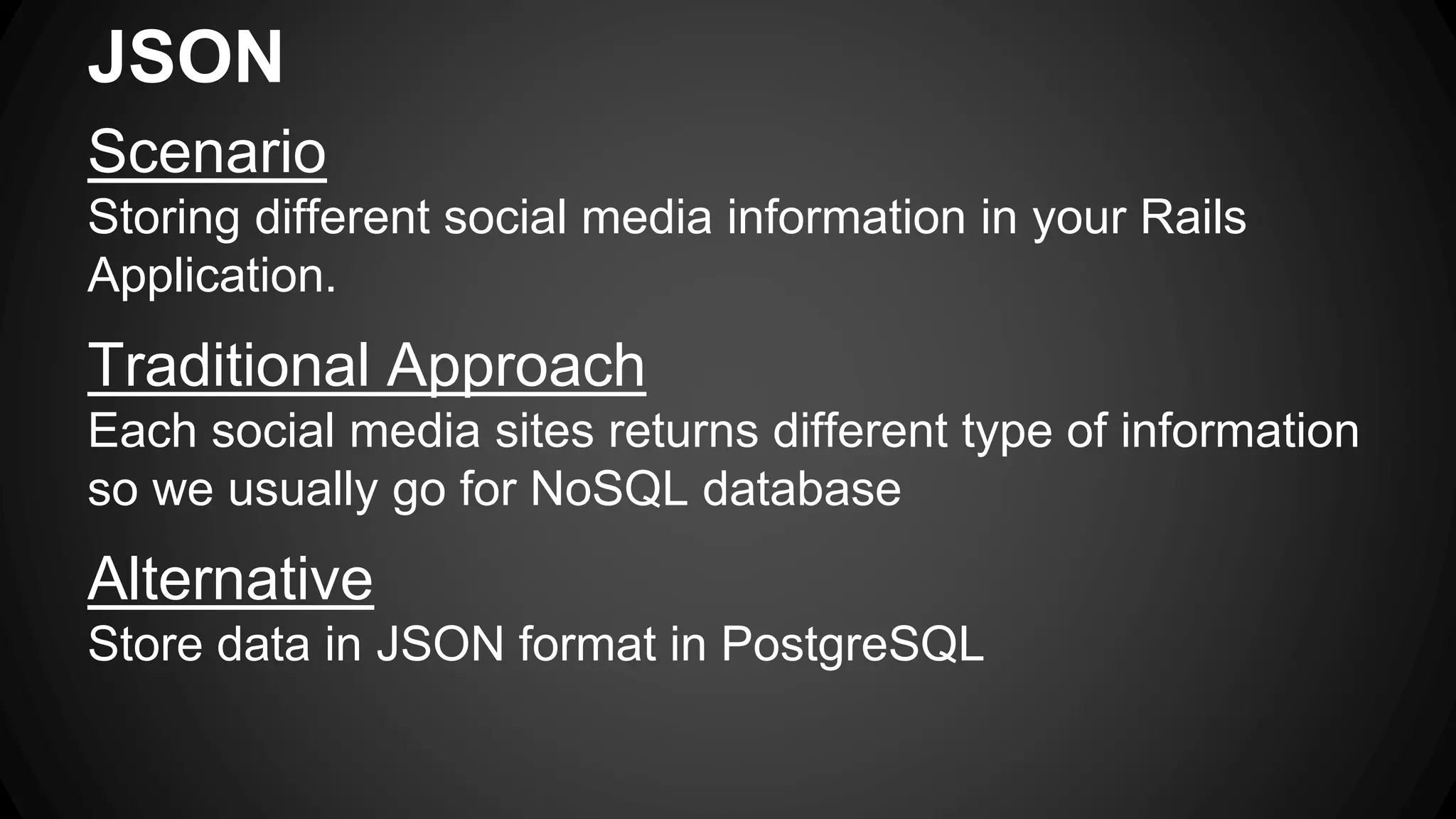
![JSON Implementation Migration create_table :socials do |t| t.json 'profile' end Querying Social.first.profile['name'] => nidhi Social.select(“profile”) Sample Twitter JSON { “username” :“sarvaiya_nidhi”, “name”:”nidhi”, “followers”:80 }](https://image.slidesharecdn.com/presentation-poweringrailsusingpostgresql3-140826103246-phpapp01/75/Powering-Rails-Application-With-PostgreSQL-8-2048.jpg)
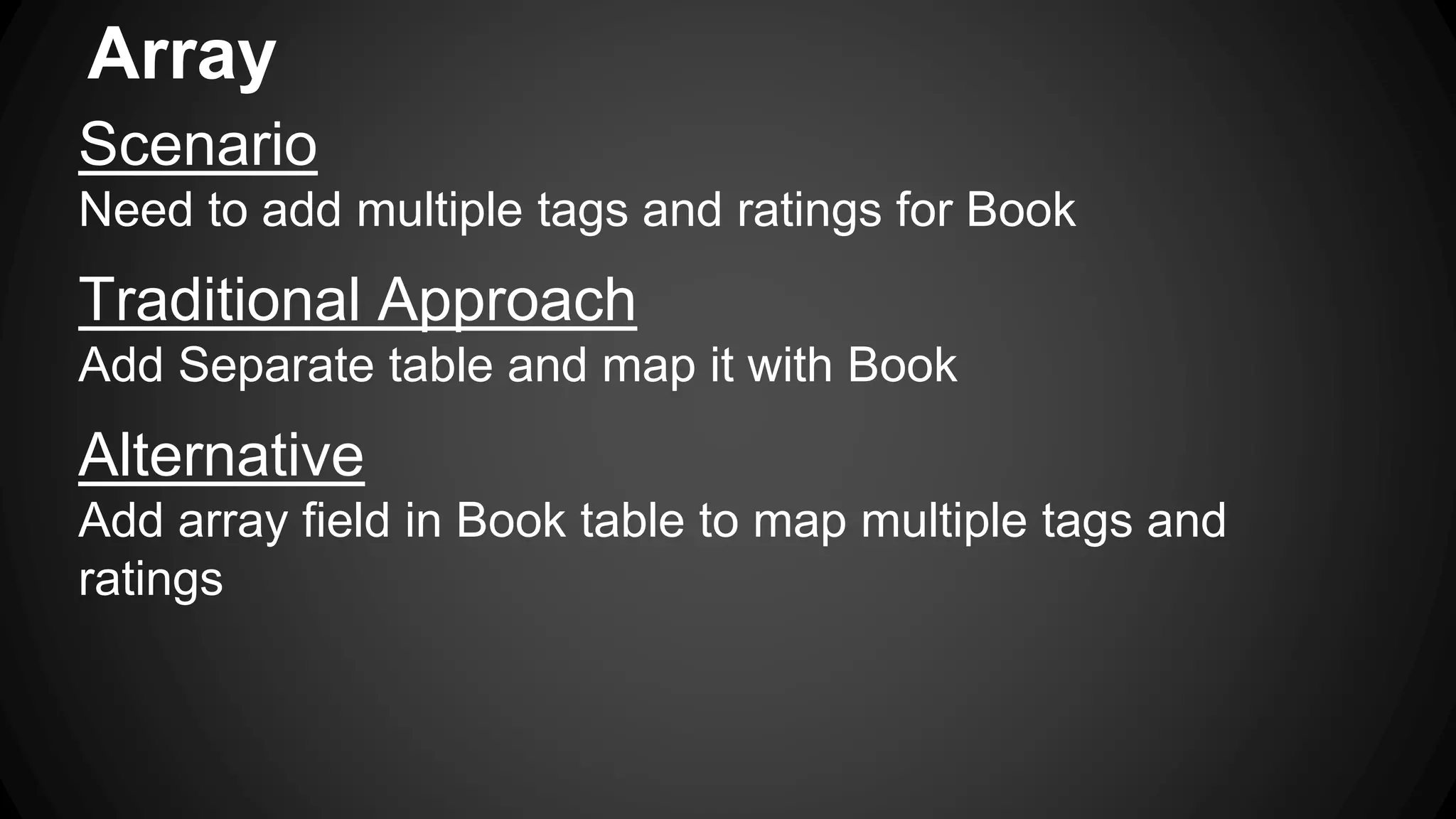
![Array Implementation Migration create_table :books do |t| t.string :title t.string :tags, array: true end Querying Get Books with specific tag Book.where("’fiction’ = ANY (tags)") Get Books with all tags or multiple tags Book.where("’fiction’ = ALL (tags)") Book.where("tags @> ARRAY[?]::varchar[]", ["fantasy", "fiction"]) Sampe Book Data Book 1 <Book id: 1, title: "Brave New World", tags: ["fantasy", "fiction"] > Book 2 <Book id: 2, title: "The Hit", tags: ["suspense", "thriller"] >](https://image.slidesharecdn.com/presentation-poweringrailsusingpostgresql3-140826103246-phpapp01/75/Powering-Rails-Application-With-PostgreSQL-10-2048.jpg)
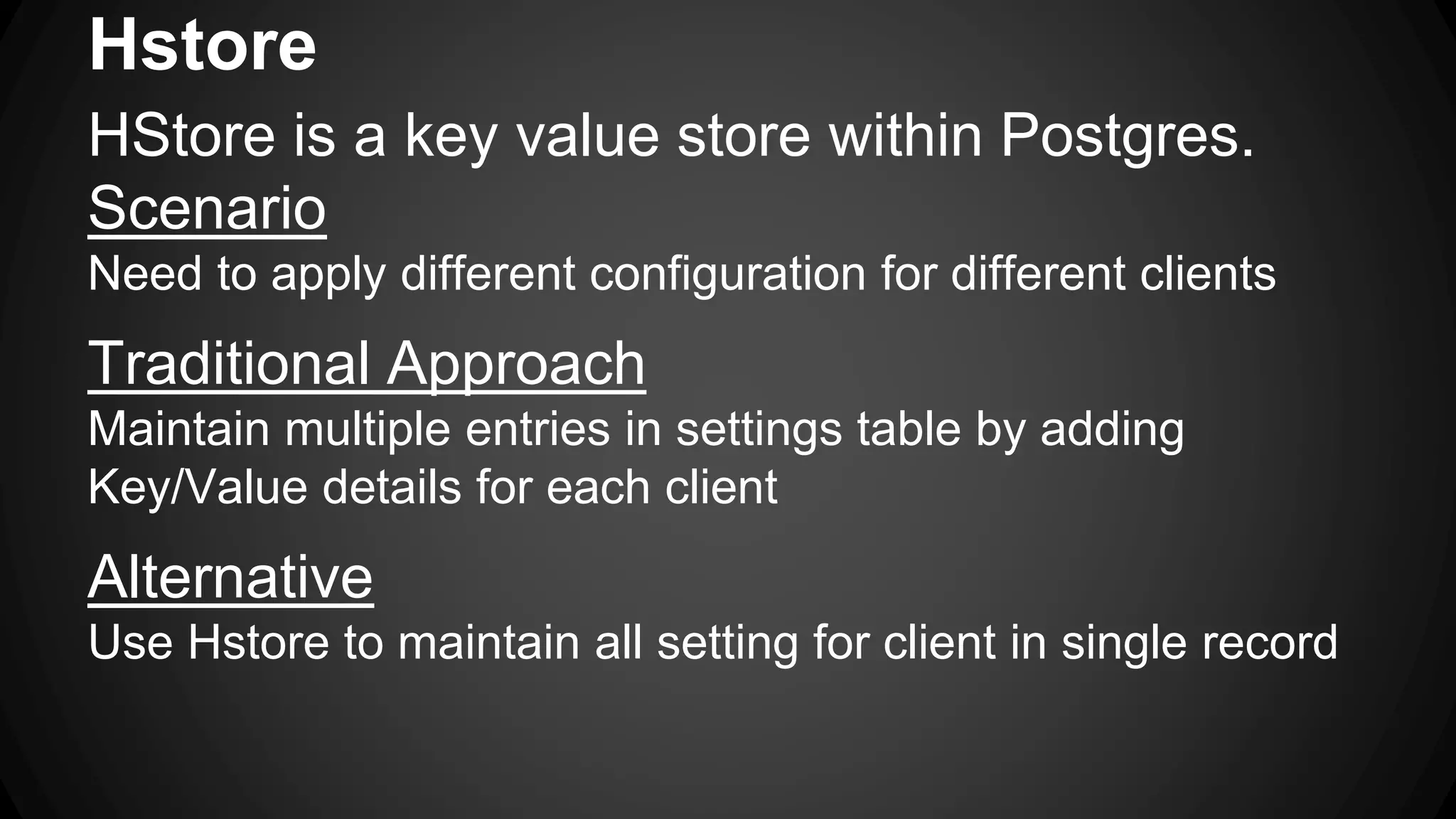
![HStore Implementation Migration def self.up execute "CREATE EXTENSION hstore" end create_table :clients do |t| t.hstore 'settings' end Querying client = Client.first client.settings # => { "background-color" => "blue", “font-size”:”14px" } Get Specific value - client.settings["-background-color"] = "blue" Sample Hstore Data settings: { "background-color" => "blue", “font-size”:”14px" }](https://image.slidesharecdn.com/presentation-poweringrailsusingpostgresql3-140826103246-phpapp01/75/Powering-Rails-Application-With-PostgreSQL-12-2048.jpg)
